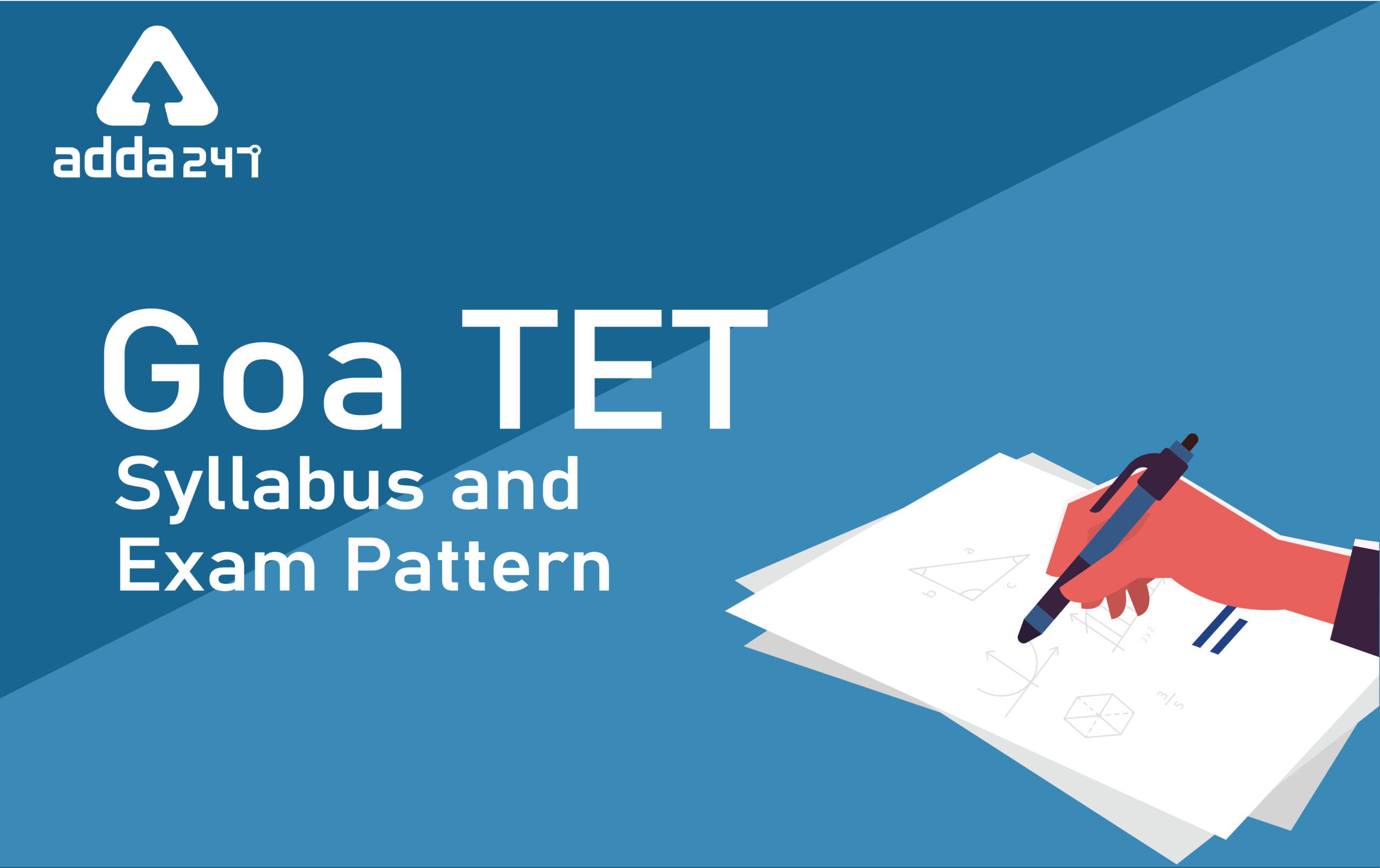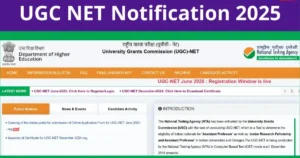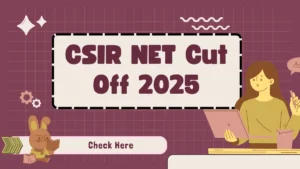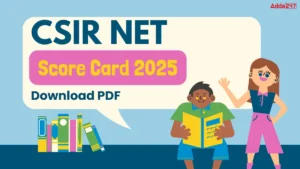Goa Teacher Eligibility Test (GTET) official detailed syllabus has been released by the Directorate of Education, Government of Goa. Goa TET 2023 will be conducted in offline mode. The Goa TET exam comprises two papers i.e Paper I & II. All the candidates have started preparing for the Goa TET examination. To clear the exam, you must be well equipped with the Goa TET syllabus 2023 PDF and exam pattern. The detailed Goa TET Syllabus for both Paper 1 (Primary Stage) and Paper 2 (Elementary Stage) has been below :
Goa TET Syllabus 2023 Highlights
Candidates may be aware of the Goa TET Exam’s important highlights and events. Candidates may check the below table to know about the basic detail of Goa TET.
| Goa TET Paper 1 Subjects |
- Child Development and Pedagogy,
- Language I (compulsory), Subject concerned Pedagogy,
- Language II (compulsory), Subject concerned Pedagogy,
- Mathematics and Subject concerned Pedagogy,
- Environmental Studies and Subject concerned Pedagogy
|
| Goa TET Paper 2 Subjects |
- Child Development and Pedagogy,
- Language I (compulsory),Subject concerned Pedagogy,
- Language II (compulsory), Subject concerned Pedagogy,
- Mathematics & Science and Subject concerned Pedagogy OR Social Science and Subject concerned Pedagogy.
|
| Language I |
English |
| Language II |
Konkani or Marathi |
| Total Questions |
150 questions (each paper) |
| Total Marks |
150 marks (each paper) |
| Total Time |
2 : 30 hrs |
| Negative Marking |
No |
| Question Pattern |
Objective Type Questions |
| Difficulty level for Goa TET Paper 1 |
Up to 8th Class |
| Difficulty level for Goa TET Paper 2 |
Up to 10th Class |
| Marking Scheme |
1 marks |
Goa TET Exam Pattern 2023
In Goa, TETT Exam comprises two papers i.e Paper 1 & Paper 2. Paper 1 is for Primary Level teachers (1st to 5th Standard) and Paper 2 is for Secondary level teachers (6th to 8th Standard). There is no negative marking in the Goa TET Exam 2023. This exam is conducted in pen-paper mode i.e offline mode.
There will be two papers of GTET.
- Paper, I will be for a person who intends to be a teacher for classes I to V.
- Paper-II will be for a person who intends to be a teacher for classes VI to VIII.
Note: A person who intends to be a teacher for both levels (classes I to V and classes VI to VIII) will have to appear in both papers (Paper I and Paper II).
| Goa TET Exam Pattern 2023 |
| Paper |
Name of Subject |
No. of Questions |
Paper |
Name of Subject |
No. of Questions |
| PAPER –I |
Child Development and Pedagogy |
30 |
PAPER-II |
Child Development and Pedagogy |
30 |
| Language I (compulsory) and Subject concerned Pedagogy |
30 |
Language I (compulsory) and Subject concerned Pedagogy |
30 |
| Language II (compulsory) and Subject concerned Pedagogy |
30 |
Language II (compulsory) and Subject concerned Pedagogy |
30 |
| Mathematics and Subject concerned Pedagogy |
30 |
Mathematics & Science and Subject concerned Pedagogy
OR
Social Studies/Social Science and Subject concerned Pedagogy |
60 |
| Environmental Studies and Subject concerned Pedagogy |
30 |
| Total Marks |
150 |
Total Marks |
150 |
| Negative marking |
No |
Negative marking |
No |
Goa TET Syllabus
The level of questions asked in the Goa TET Exam is as per the Level of the paper. Here you will find the list of topics available in the Goa TET Syllabus of paper 1 and Paper 2 separately. Candidates may the complete topic wise Goa TET Syllabus in this article.
Paper I: Primary Stage (for classes I to V)
I. Child Development and Pedagogy – 30 Questions
| Section |
Topic |
Detail |
Total Questions |
| A |
Child Development (Primary School) |
- Concept of development and its relationship with learning
- Principles of growth and development of children (up to 11 years)
- Causes of individual differences Heredity & Environment
- Social and Emotional development, Piaget’s stages of cognitive development
- Concepts of child-centred and progressive education
- Concept and types of Intelligence, Multiple Intelligence, Emotional Intelligence
- Measurement of Intelligence
- Concept of Personality, Development of Personality in Childhood
- Adjustment and Mental Health
|
10 Questions |
| B |
Learning |
- How children think and learn
- Concept and nature of learning, learning styles
- Theories and principles of Conditioning, Cognitivism and Constructivism
- Factors affecting Learning: Motivation, Attention, Memory, Emotion etc.
- Transfer of Learning: Concept, Types, Methods
- Information Processing and thinking: Critical thinking, problem-solving, divergent thinking, creativity and innovation.
|
10 Questions |
| C |
Curriculum, Pedagogy and Evaluation |
- Concept and Principles of Curriculum
- Types of Curriculum
- Factors affecting Curriculum Transaction
- Concept and Forms of Evaluation
- Continuous & Comprehensive Evaluation: perspective and practice
- Different types of tests, Marking, grading of scholastic and co-scholastic achievement of children.
- Principles of test construction and characteristics of a good test
- Question Bank, Blue Print and Item Analysis
|
7 Questions |
| D |
Concept of Inclusive education and understanding children with special needs |
- Features, characteristics and Educational Provision for Gifted children, Slow Learners, Physically challenged and children with Learning Disabilities
- Concept and strategies for Inclusive Education
|
3 Questions |
II. Language I (English) – 30 Questions
| Section |
Topic |
Detail |
Total Questions |
| A |
Language Comprehension |
Reading unseen passage – two passages one prose or drama and one poem with questions on comprehension, inference, grammar and verbal ability (Prose passage may be literary, scientific, narrative or discursive) |
15 Questions |
| B |
Pedagogy of Language Development |
- Principles, aims and objectives of English language teaching
- Approaches, Methods and techniques of teaching English
- Learning and acquisition of English language skills: Pronunciations, Stress and Modulation
- Role of listening and speaking: function of language and how children use it as a tool
- Communicative and writing skills in English
- Role of grammar in learning English language for communicating ideas verbally and in written form
- Challenges of teaching the English language: Prose, Poetry, Composition, Letter Writing, creative writing etc.
- Evaluating English language comprehension and proficiency: speaking, listening, reading and writing
- Teaching-learning materials: Textbook, multi-media materials, multilingual resources of the classroom
- Diagnostics Test and Remedial Teaching
|
15 Questions |
III. Language – II Marathi/Konkani 30 Questions
| Section |
Topic |
Detail |
Total Questions |
| A |
Comprehension |
Reading unseen passages – two passages one prose or drama and one poem with questions on comprehension, inference, grammar and ve4rbal ability (Prose passage may be literary, scientific, narrative or discursive) |
15Questions |
| B |
Pedagogy of Language Development |
- Principles, aims and objectives of language teaching
- Approaches, Methods and Techniques of teaching language
- Learning and acquisition of language skills: Pronunciations, Stress and Modulation
- Role of listening and speaking: function of language and how children use it as a tool
- Communicative and Writing skills
- Role of grammar in learning language for communicating ideas verbally and in written form
- Challenges of teaching language: Prose, Poetry, Composition, letter writing, creative writing etc.
- Evaluating language comprehension and proficiency: speaking, listening, reading and writing
- Teaching – learning materials: Textbook, multi-media materials, multilingual resource of the classroom
- Diagnostic Test and Remedial Teaching
|
15Questions |
IV. Mathematics 30 Questions
| Section |
Topic |
Detail |
Total Questions |
| A |
Content |
- Geometry
- Shapes & Spatial Understanding
- Solids around Us
- Numbers
- Addition and Subtraction
- Multiplication
- Division
- Measurement
- Weight
- Time
- Volume
- Data Handling
- Patterns
- Money
|
15 Questions |
| B |
Pedagogical issues |
- Aims and objectives of teaching Mathematics
- Place of Mathematics in school Curriculum
- Methods of teaching Mathematics: inductive, deductive, analytic, synthetic, heuristic
- Approaches and techniques involved in teaching of Mathematics
- Competency based teaching in Mathematics (class-I-IV)
- Concept Attainment Model of teaching in Mathematics
- Challenges of Teaching Mathematics
- Teaching – learning materials: Textbook, Mathematical Kit, Models, other aids
- Evaluation through formal and informal methods
- Error analysis and related aspects of learning and teaching
- Diagnostic Test and Remedial Teaching
|
15 Questions |
V. Environmental Studies 30 Questions
| Section |
Topic |
Detail |
Total Questions |
| A |
Content |
- Family and Friends:
- Relationships
- Work and Play
- Animals
- Plants
- Food Shelter
- Water
- Travel
- Things we Make and Do
|
15 Questions |
| B |
Pedagogical Issues |
- Meaning, scope and purpose of EVS
- Significance of EVS as an integrated area of study at primary level
- Environmental Studies in relation to Science & Social Studies
- Methods of teaching EVS: Observation Method, Project Method, Role Play,
- Storytelling, Environmental Games, Exhibition etc.
- Approaches to teaching EVS: Activity based, Exploration, Discovery,
- Experimentation/ Practical Work, Reporting
- Teaching – learning materials: Textbook, Computer aided Learning, Models, other locally relevant resources etc.
- Evaluation of learning objectives of EVS: Achievement test, Environmental
- Awareness test, assessment of attitude towards Environment, Interest etc.
- Diagnostic Test and Remedial Teaching in EVS
|
15 Questions |
Paper-II: Elementary Stage (for classes VI to VIII)
I. Child Development and Pedagogy 30 Questions
| Section |
Topic |
Detail |
Total Questions |
| A |
Child Development (Elementary School) |
- Meaning and Nature and Scope of Educational Psychology
- Concept and Principles of Growth and Development and its relationship with learning
- Characteristics of growth and development of children (Physical, Emotional, Social)
- Causes of Individual differences: Heredity & Environment,
- Social and Emotional development, Paget’s stages of cognitive development
- Concepts of child- centred and progressive education
- Concept and types of Intelligence, Multiple Intelligence, Emotional Intelligence
- Measurement of Intelligence
- Concept of Personality, Development of Personality in Childhood
- Adjustment and Mental Health at home and school
- Self-Concept, attitude, interest, values
|
10 Questions |
| B |
Learning |
- How children think and learn
- Concept and nature of Learning, Learning styles
- Laws of Learning
- Theories and principles of Conditioning, Cognitivism and Constructivism
- Factors affecting Learning: Concept, Types, Methods
- Information Processing and thinking: Critical thinking, problem solving, divergent thinking, creativity and innovation
|
10 Questions |
| C |
Curriculum, Pedagogy and Evaluation |
- Concept and Principles of Curriculum
- Bases of Curriculum Development: Models of Curriculum Development
- Types of Curriculum Development
- Factors affecting Curriculum Transaction
- Concept and Forms of Evaluation
- Continuous & Comprehensive Evaluation: perspective and practice
- Different type of tests: Marking, grading of scholastic and co-scholastic
- Achievement of children.
- Principles of test construction and characteristics of a good test
- Question Bank, Blue Print and Item Analysis
|
7 Questions |
| D |
Concept of Inclusive education and understanding children with special needs |
- Features, Characteristics and Educational Provision for:
- Gifted children, Slow Learners, physically challenged and children with Learning Disabilities
- Concept and strategies for Inclusive Education
|
3 Questions |
II. Language I (English) 30 Questions
| Section |
Topic |
Detail |
Total Questions |
| A |
Language Comprehension |
Reading unseen passage – two passages one prose or drama and one poem with questions on comprehension, inference, grammar and verbal ability (Prose passage may be literary, scientific, narrative or discursive) |
15 Questions |
| B |
Pedagogy of Language Development |
- Principles, aims and objectives of English language teaching
- Approaches, Methods and techniques of teaching English
- Learning and acquisition of English language skills: Pronunciations, Stress and Modulation
- Role of listening and speaking: function language and how children use it as a tool
- Communicative and writing skills in English
- Role of grammar in learning English language for communicating ideas verbally and in written form
- Challenges of teaching English language; Prose, Poetry, composition, letter writing, creative writing etc.
- Evaluating English language comprehension and proficiency: speaking, listening,
- reading and writing
- Teaching – learning materials: Textbook, multi-media materials, multilingual resource of the classroom
- Diagnostic Test and Remedial Teaching
|
15 Questions |
III. Language – II: Marathi/Konkani 30 Questions
| Section |
Topic |
Detail |
Total Questions |
| A |
Comprehension |
Reading unseen passage – two passages one prose or drama and one poem with questions on comprehension, inference, grammar and verbal ability (Prose passage may be literary, scientific, narrative or discursive) |
15 Questions |
| B |
Pedagogy of Language Development |
- Principles, aims and objectives of language teaching
- Approaches, Methods and techniques of teaching language
- Learning and acquisition of language skills: Pronunciations, Stress and Modulation
- Role of listening and speaking: function of language and how children use it as a tool
- Communicative and writing skills
- Role of grammar in learning language: Prose, Poetry, composition, letter writing, creative writing etc.
- Evaluating language comprehension and proficiency: speaking, listening, reading and writing
- Teaching – learning materials: Textbook, multi-media materials, multilingual resource of the classroom
- Diagnostic Test and Remedial Teaching
|
15 Questions |
IV. Mathematics and Science 60 Questions
(i) Mathematics 30 Questions
| Section |
Topic |
Detail |
Total Questions |
| A |
Content |
- Number System
- Knowing our Numbers
- Playing with Numbers
- Whole Numbers
- Negative Numbers and Integers
- Fractions
- Algebra
- Introduction to Algebra
- Ratio and Proportion
- Geometry
- Basic geometrical ideas (2-D)
- Understanding Elementary Shapes (2-D and 3-D)
- Symmetry: (reflection)
- Construction (Using Straight edge Scale, protractor, compasses)
- Menstruation
- Data handling
|
20 Questions |
| B |
Pedagogical issues |
- Aims and objectives of teaching Mathematics
- Place of Mathematics in school Curriculum
- Methods of teaching Mathematics: inductive, deductive, analytic, synthetic, heuristic
- Approaches and techniques involved in teaching of Mathematics
- Competency based teaching in Mathematics (class-I-IV)
- Concept Attainment Model of teaching in Mathematics
- Challenges of Teaching Mathematics
- Teaching – learning materials: Textbook, Mathematical Kit, models, other aids
- Evaluation through formal and informal methods
- Error analysis and related aspects of learning and teaching
- Diagnostic Test and Remedial Teaching
|
10 Questions |
IV. Science 30 Questions
| Section |
Topic |
Detail |
Total Questions |
| A |
Content |
- Food
- Sources of food
- Components of food
- Cleaning food
- Materials
- Materials of daily use
- The World of the Living
- Moving Things People and Ideas
- How things work
- Electric Current and Circuits
- Magnets
- Natural Phenomena
- Natural Resources
|
20 Questions |
| B |
Pedagogical issues |
- Nature, aims and objectives of teaching Sciences
- Correlation of Science with other subjects in the curriculum
- Methods and teaching Strategies of Science: Lecture, Demonstration. Heuristic, Inductive-deductive, Project etc.
- Observation/Experiment/Discovery (Methods of Science)
- Teaching Resources: Textbooks, charts, models, specimen, use of mass media, use of ICT
- Science Laboratory, Science Club, Science Exhibition
- Scientific Attitude
- Diagnostic Test and Remedial Teaching
|
10 Questions |
V. Social Studies/ Social Science 60 Questions
| Section |
Topic |
Detail |
Total Questions |
| A
|
History |
- When, Where and How
- The Earliest Societies
- The First Cities
- Early States
- New Ideas
- The First Empire
- Contacts with Distant lands
- Political Developments
- Culture and Science
- New Kings and Kingdom
- Sultans of Delhi
- Architecture
- Creation of an Empire Social Change
- Regional Cultures
- The Establishment of Company Power
- Rural Life and Society
- Colonialism and Tribal Societies
- The Revolt of 1857-58
- Women and reform
- Challenging the Caste System
- The Nationalist Movement
- India After Independence
|
20 Questions |
| Geography |
- Geography as a social study and as a science
- Planet: Earth in the Solar system
- Globe
- Environment in its totality: natural and human environment Air Water
- Human Environment: Settlement, transport and Communication
- Resources: Types- Natural and Human
- Agriculture
|
10 Questions |
| Social and Political Life |
- Diversity
- Government
- Local Government
- Making a Living Democracy
- State Government
- Understanding media
- Unpacking Gender
- The Constitution
- Parliamentary Government
- The Judiciary
- Social Justice and the Marginalized
|
10 Questions |
| B |
Pedagogical issues |
- Nature, aims and objectives of teaching Social Studies (History, Geography, Social and Political Life)
- Correlation of Social Studies with other subjects in the curriculum
- Methods and Teaching Strategies of Social studies: Lecture, Story Telling, Dramatization, Discussion, Brain Storming, Field trips, project methods etc.
- Observation/Excursion/Regional (Method of social studies)
- Teaching Resources: Textbooks, charts, models, News Paper, Historical Lab, Geography room, Museum, Exhibition
- Practical Geography
- Infusion of Local History
- Diagnostic Test and Remedial Teaching
|
20 Questions |
Download Goa TET Syllabus and Exam Pattern for Paper 1 and Paper 2 PDF
For More Details :
Sharing is caring!



 UGC NET Notification 2025 Out, Exam Date...
UGC NET Notification 2025 Out, Exam Date...
 CSIR NET Cut Off 2025, Download Subject ...
CSIR NET Cut Off 2025, Download Subject ...
 CSIR NET Scorecard 2025 Out, Download Re...
CSIR NET Scorecard 2025 Out, Download Re...














